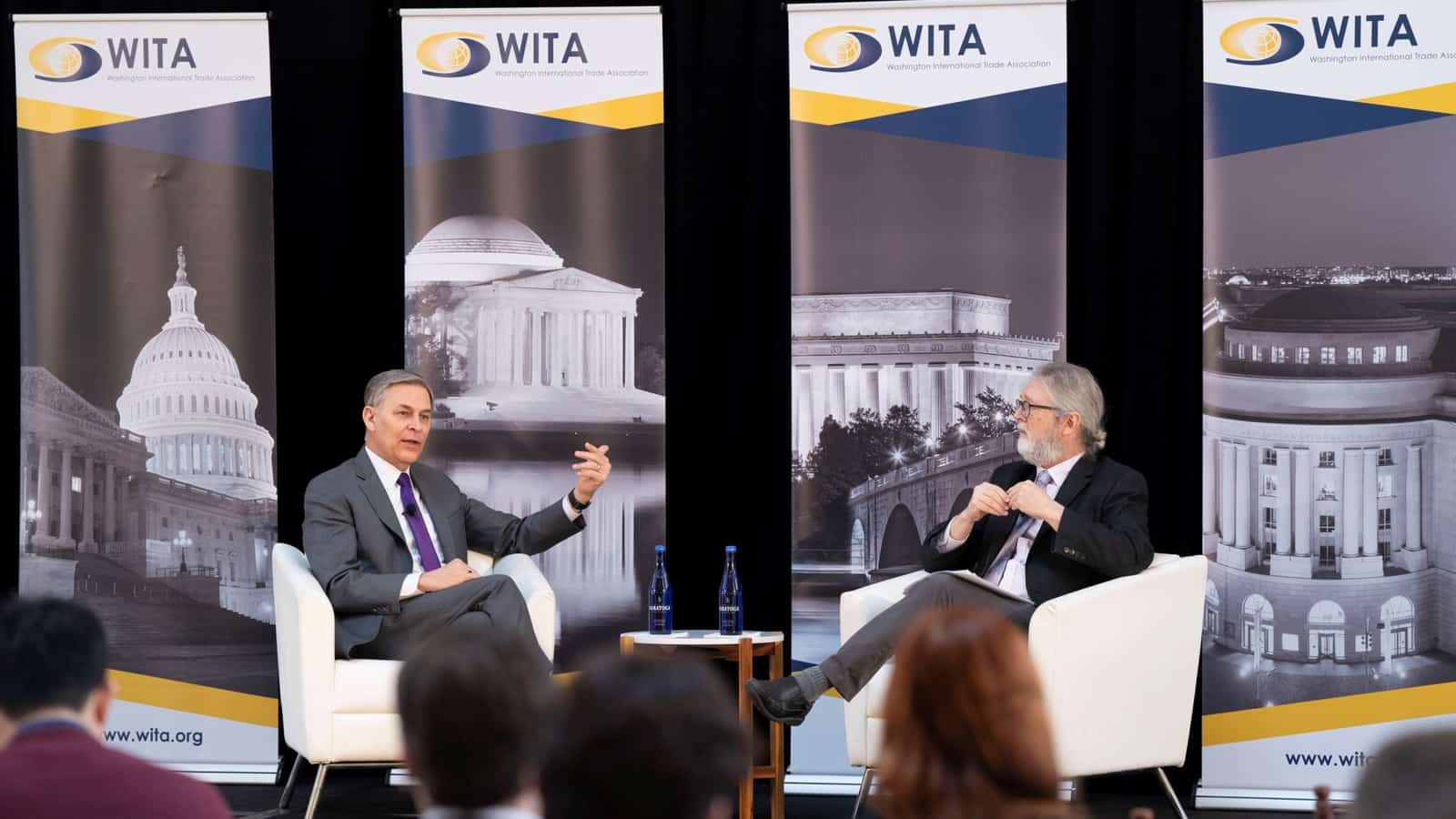Timmons Talks Trade, Tariffs, Democracy in Washington, D.C.

U.S. competitiveness on the world stage, trade agreements, intellectual property, democracy and regulatory certainty—these were just some of the topics NAM President and CEO Jay Timmons covered in a Tuesday interview with POLITICO’s Doug Palmer during the 2024 Washington International Trade Conference.
- The meeting was attended by senior U.S. trade officials and foreign ambassadors and hosted by the Washington International Trade Association in Washington, D.C.
Safeguarding IP: With the World Trade Organization’s 13th Ministerial Conference coming up later this month, Timmons discussed the damage that would result from one of the meeting’s expected agenda items: an expansion of a 2022 TRIPS waiver on IP rights to include COVID-19 therapeutics and diagnostics.
- “Intellectual property is truly the lifeblood of manufacturing,” said Timmons, who met with WTO Director-General Dr. Ngozi Okonjo-Iweala and WTO Deputy Director General Angela Ellard in Geneva last March to discuss the waiver.
- Manufacturers “work hard, and it’s always been kind of a given from the U.S. perspective that intellectual property protections would be front and center. … Obviously, we want to facilitate the growth of manufacturing in other areas of the world, too. But … [it] is a giant leap too far if therapeutics and diagnostics are included in the waiver.”
- American agreement to the expanded waiver, Timmons said, would be tantamount to the federal government telling manufacturers in the U.S., “By the way, we want you to invest in developing more innovations here in this country if we’re just going to turn around and give them away.”
Trade and tariffs: If the U.S. wants to remain competitive, we must negotiate a trade agreement now—and pass the Miscellaneous Tariff Bill, Timmons told Palmer.
- “Trade is really the recipe for peace and the recipe for working together harmoniously,” he said. “We’d like to see more trade agreements. We haven’t seen one negotiated here in the United States for over 10 years—and the rest of the world, quite frankly, is eating our lunch when it comes to negotiating these agreements.”
- The U.S., which has been operating without an MTB for more than three years, “need[s] MTB to not just meet our economic goals and not just feed the supply chains of manufacturers, but also to meet our national security objectives.”
Democracy vs. autocracy: Timmons—who last July led the American business community delegation to Cancun, Mexico, for meetings ahead of the third U.S.–Mexico–Canada Agreement “Free Trade Commission”—stressed the importance of the USMCA to underpinning democratic values worldwide.
- “This agreement is incredibly important to our national security, and it is important to our place in the world,” Timmons continued. “We need to expand the relationship, whether it’s trade or other relationships here in North America, and we need to embrace the relationships and our allies around the world—in Europe and Australia and New Zealand and Japan and other areas—because we are facing a choice … between free market economies and democracies and command economies and autocracies, and I want to strengthen the former, not allow the latter to bloom.”
Other needs: Timmons talked about other manufacturing priorities for the current administration and the next.
- “We need regulatory certainty that gives business leaders the ability to plan for the future,” he said. “We [also] need to invest in workforce incentives. All of those and infrastructure, which we have done, and we continue to do. You can’t just open up the trading system and not expect capital to flow outside of our borders if you don’t have the right policies internally.”
NAM in the news: Read POLITICO Pro’s coverage of the conference and Timmons’ interview here and here.
